US President-elect Donald Trump is likely to tap a roster of billionaires – Elon Musk, Stephen Schwarzman, Steve Wynn and Linda McMahon – along with some trusted Washington policy wonks to steer his freestyle diplomacy with Beijing, analysts said.
These powerful figures are expected to play outsize roles as Trump prepares for a high-stakes second term, including tariffs of up to 60 per cent or more on Chinese imports that the president-elect has promised.
In sharp contrast to outgoing President Joe Biden’s methodical approach to issues like trade, technology and Taiwan, Trump’s China strategy in the transition and first 100 days is likely to emphasise informal, transaction-focused backchannel deal-making.
Do you have questions about the biggest topics and trends from around the world? Get the answers with SCMP Knowledge, our new platform of curated content with explainers, FAQs, analyses and infographics brought to you by our award-winning team.
China experts anticipate Trump will rely on business and policy professionals with mainland experience, rather than more hawkish ideologues, while access will be managed by a trusted aide and newly influential members of the First Family.
Meanwhile, Beijing will seek both authoritative and unofficial channels with Trump’s new team, with figures like former economic tsar Liu He, who signed a trade deal in the first Trump administration, set to play a quiet but influential role, they added.
However, some analysts have questioned the effectiveness of backchannels if Beijing perceives Trump’s initial stance as hostile.
“Trump’s style is that he prefers private diplomacy” and would like to rely on a “smaller inner circle of professionals”, said Denis Simon of the Quincy Institute for Responsible Statecraft, a Washington-based think tank.
The current framework led to Biden’s meeting with Chinese President Xi Jinping in San Francisco a year ago. The leaders’ face-to-face dialogue helped pull US-China relations out of a lengthy freeze.
The summit followed an eight-hour secret meeting between Chinese Foreign Minister Wang Yi and US National Security Adviser Jake Sullivan in Vienna in May.
And the revived ties led to the creation of several working groups aimed at opening communication and managing competition to prevent accidental conflict. These mechanisms, however, could lose relevance under Trump.
Bonnie Glaser of the German Marshall Fund, a Washington-based public policy think tank, believed informal communications could be crucial during the transition and in the early months of the new White House.
Beijing was “seeking early backchannel talks to head off more tariffs” and has pushed for a meeting between Trump and Xi, said Glaser.
“US businessmen with direct access to Trump are the most likely candidates for delivering early messages and helping arrange meetings,” she added.
Multiple observers have identified Elon Musk, the world’s richest man, as a natural fit for an intermediary role. Musk’s extensive investments in China, particularly through his electric-vehicle company Tesla, are thought to give him considerable stature.
“Elon Musk can see Xi Jinping when he wants and he can see Trump when he wants,” said Simon, describing the tycoon as a “hell of a smart guy” who could act as a bridge between the two superpowers.
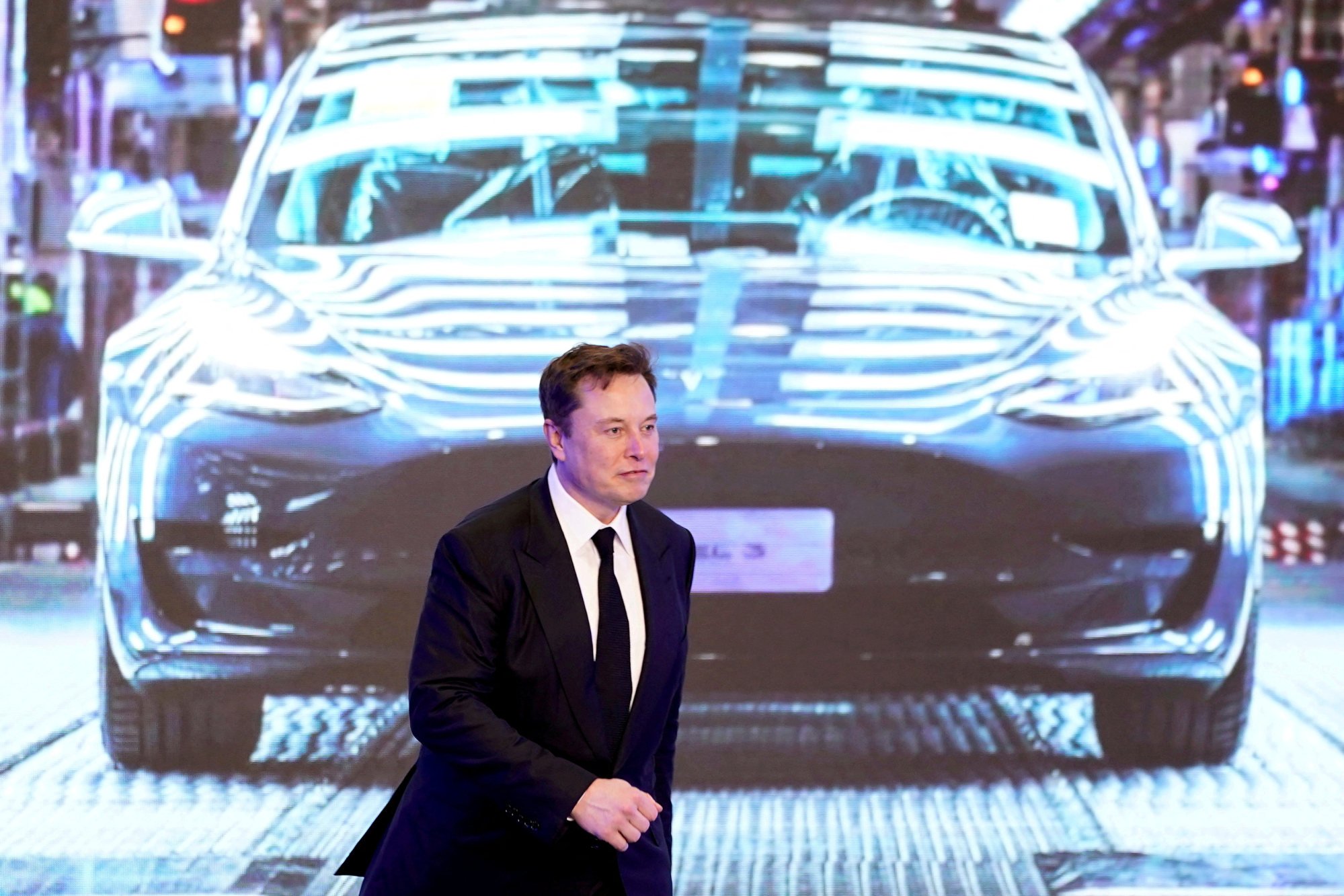
In April, Musk made a surprise visit to Beijing, meeting with Premier Li Qiang, China’s No. 2 official. Last year, he met with then-foreign minister Qin Gang, expressing his opposition to US-China “decoupling”. Musk in May criticised Biden’s decision to impose 100 per cent tariffs on the mainland’s electric vehicles.
Yet analysts also said Musk could bring complications, like his possibly prioritising issues pertinent to his companies, conflicts of interest over his mainland investments if working for the US government and a lack of experience in policymaking.
“Musk may not make too many suggestions on issues related to Taiwan and the South China Sea because he does not have the professional knowledge [in those areas],” said Sun Chenghao of Tsinghua University’s Centre for International Security and Strategy.
In addition, Musk’s role could be “superficial”, according to Josef Gregory Mahoney of East China Normal University. “Both Trump and Xi know that Musk has his own agendas and that he’s not politically reliable,” Mahoney said.
Another name mentioned for a Trump administration role is Stephen Schwarzman, chairman of global private equity firm Blackstone. The billionaire financier boasts deep ties to Beijing.
In 2016, he founded the Schwarzman Scholars programme at Tsinghua University. Although he initially stayed neutral during Trump’s 2024 campaign, he later became a top donor and key adviser. In his frequent access to the president, Schwarzman stressed the importance of the US-China relationship.
Schwarzman has already served as an interlocutor with Xi, personally inviting the Chinese leader to Mar-a-Lago in 2017. In 2018, he reportedly made eight trips to the mainland on behalf of the administration, briefing Trump on his efforts to reassure Beijing that the American president did not seek a trade war.
Simon described Schwarzman as a “very good friend” of Trump’s, well-regarded in Beijing and someone he thought could be a contender for US ambassador to Beijing.
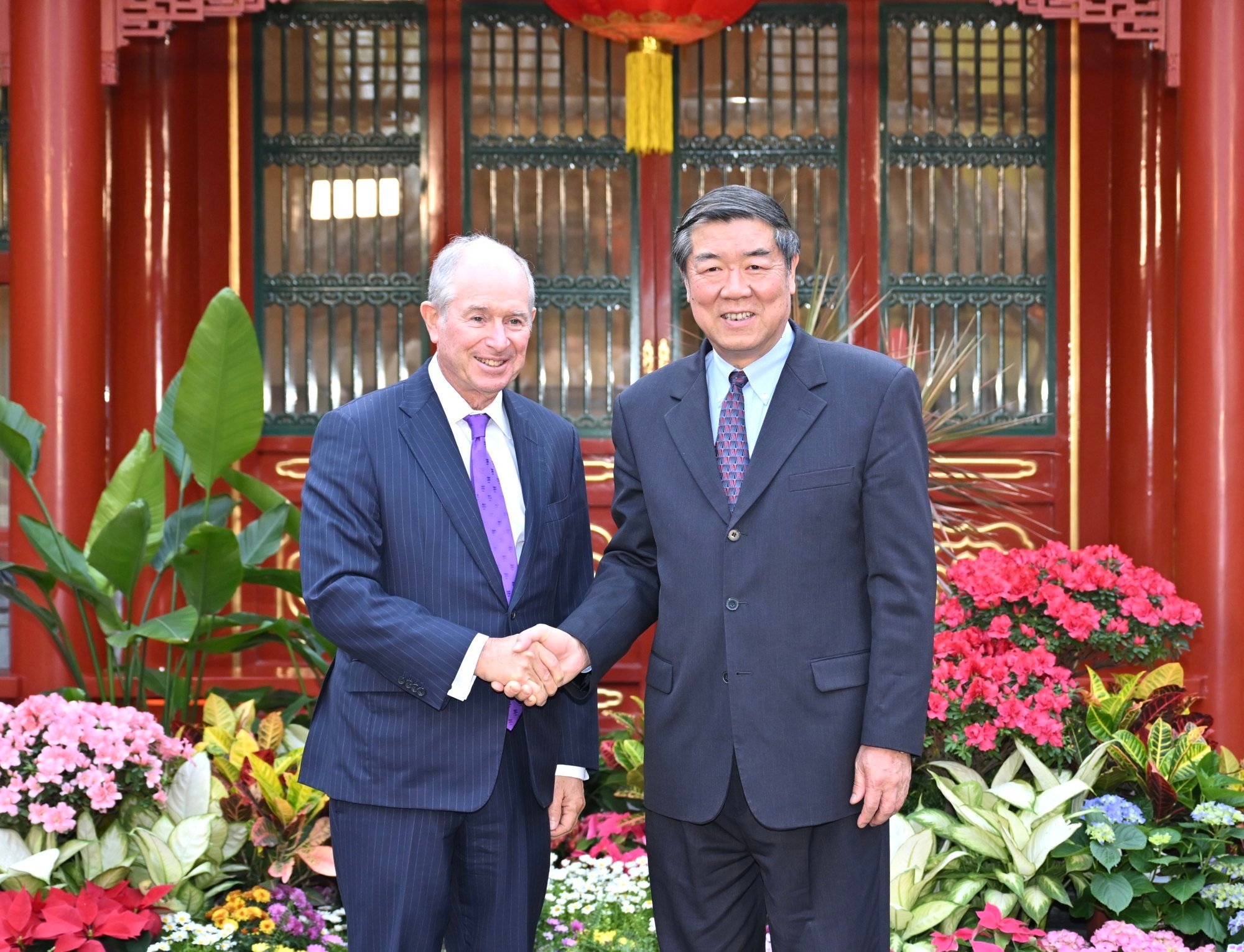
Steve Wynn, the American casino mogul with business ties to China and a major Republican donor, could be another key billionaire broker. His role as an intermediary during Trump’s first term drew political scrutiny under Biden.
In May 2022, the US Department of Justice sued Wynn to register as a foreign agent, citing messages he sent to the Trump administration relaying Beijing’s request to remove a Chinese national seeking asylum in 2017.
A federal judge later dismissed the case, ruling that Wynn’s relationship with the Chinese government had ended that year.
Former World Wrestling Entertainment CEO Linda McMahon is another billionaire in Trump’s orbit. She co-chairs Trump’s transition team and is a reported front runner for replacing Janet Yellen at Treasury.
Yellen, the first woman to serve as Treasury secretary, has travelled multiple times to Beijing in the past 18 months, raising issues like overcapacity.
McMahon served as head of the Small Business Administration from 2017 to 2019 and has hailed the president-elect as “the best friend American workers ever had”.
Another key figure to watch is Michael Pillsbury, a Mandarin-speaking foreign-policy strategist who previously acted as an intermediary between the Trump White House and China, especially on trade.
In 2016, after Trump’s call with then-Taiwanese leader Tsai Ing-wen, Pillsbury was summoned to advise the American president on managing escalating tensions with Beijing.
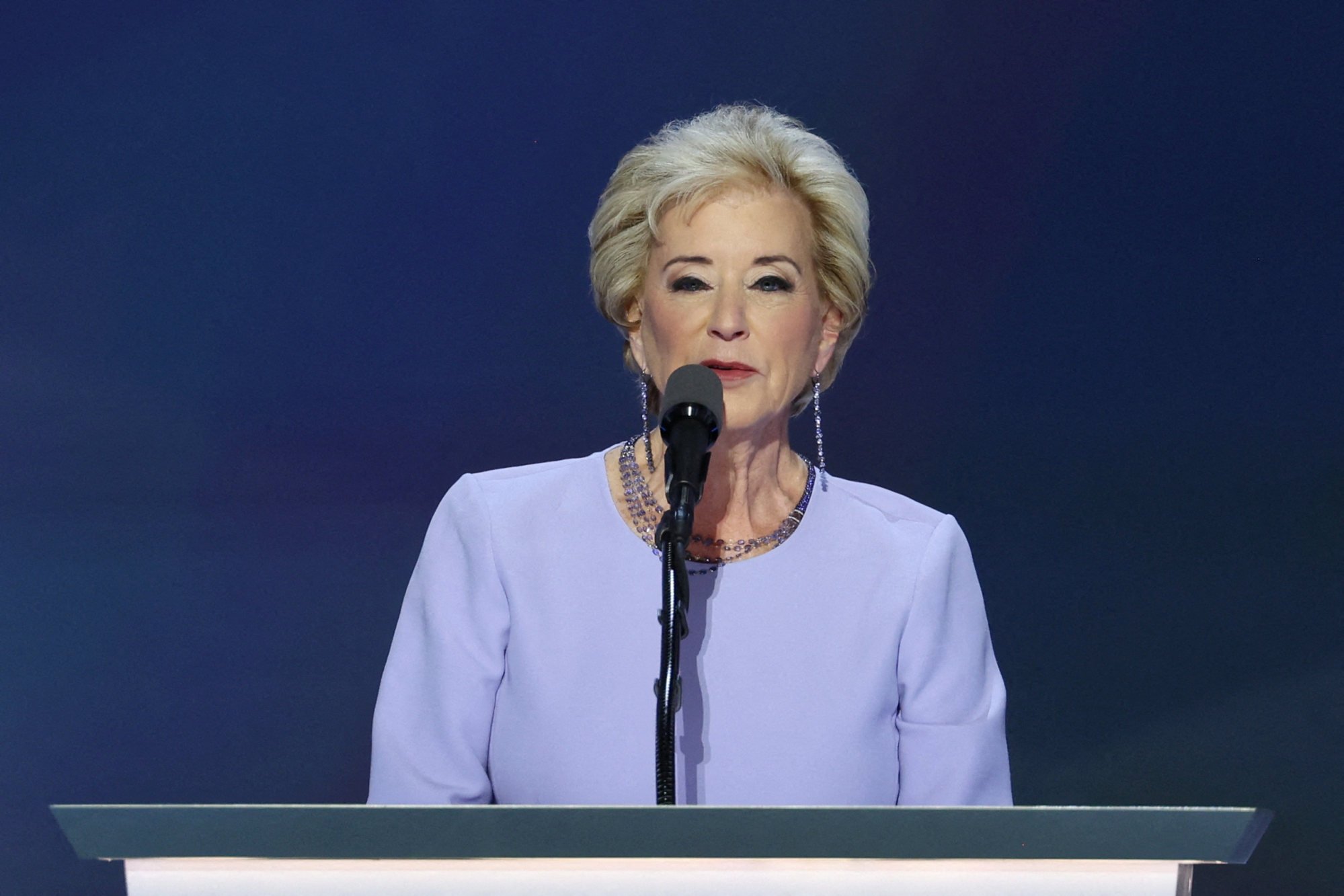
Meanwhile, US Vice-President-elect J.D. Vance is not seen as a desirable backchannel link by Beijing, according to Glaser. The US senator from Ohio has described China as the “biggest threat to our country”.
Observers have said Beijing could turn to both official and outside channels to learn of Trump’s “first steps” towards China, including gleaning what his cabinet picks mean while trying to pass messages to the new administration through these channels.
Mainland officials would “hedge their bets by going through any other channel they can find that they think has influence with the next administration,” said Rick Waters, who until last year was US deputy assistant secretary of state for China and Taiwan.
Beijing probably wanted backchannels more than Washington, according to Neil Thomas of the Asia Society Policy Institute’s Centre for China Analysis.
“While Trump is comfortable doing diplomacy out in the open, Xi is concerned to avoid any public perception of being deferential or making concessions to the United States,” he said.
Thomas believed it was possible that Liu, the former Chinese vice-premier, could be tapped to handle Sino-American relations in a “semi-retirement” role during Trump’s second term.
Liu is still thought to wield substantial influence on Beijing’s economic policymaking, having quietly held private meetings with Yellen and Commerce Secretary Gina Raimondo after he retired from his post last year.
“Xi’s current Politburo lacks a figure like Liu He who is close to Xi, speaks good English, understands international business and has significant experience in the United States,” added Thomas, noting Liu’s successor, He Lifeng, does not speak English.
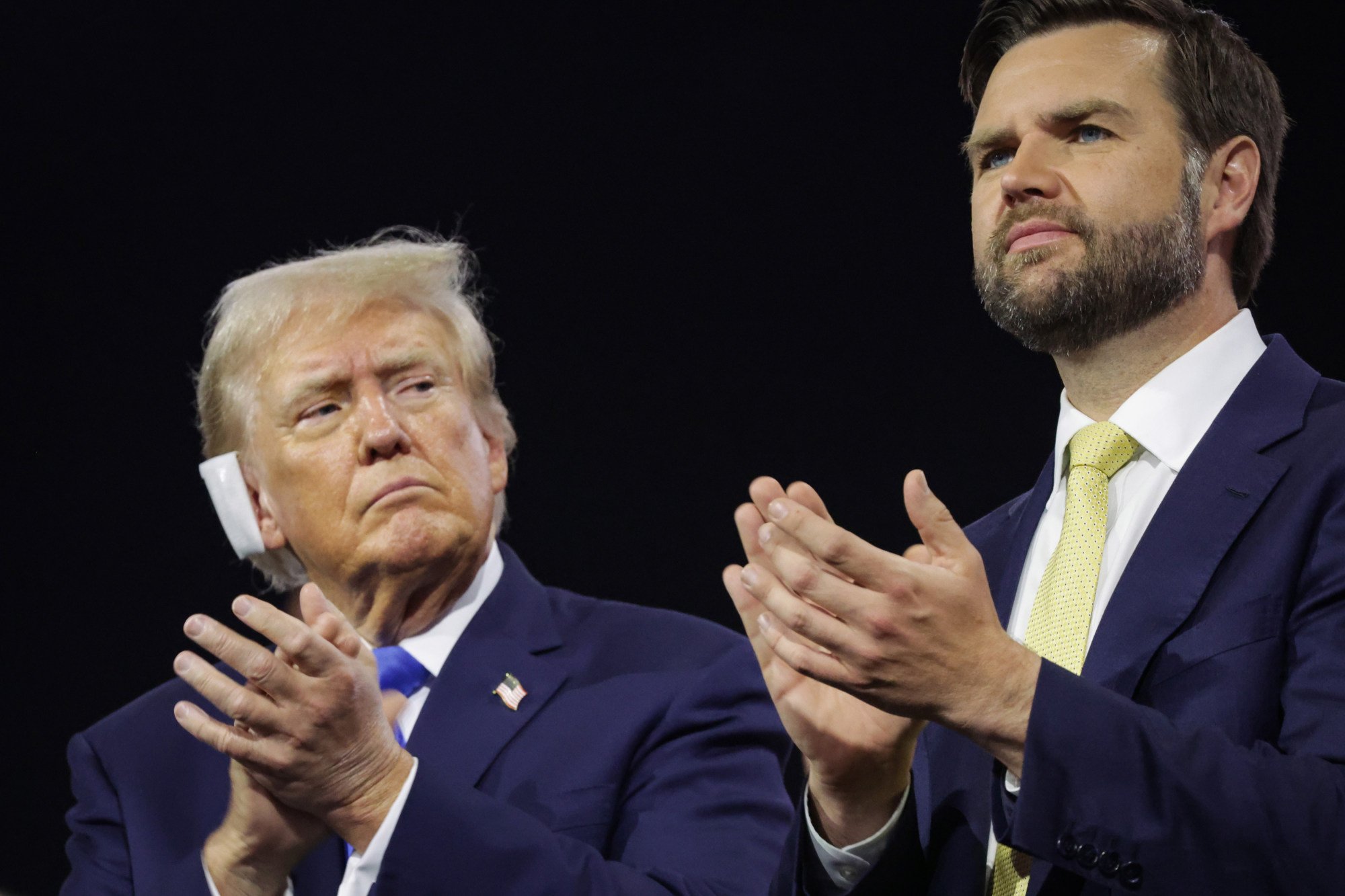
Beijing required “someone who also has a counterpart on the other side, typically within the government, as the Chinese are not comfortable with outside channels”, said Joerg Wuttke of the business consultancy Albright Stonebridge Group
Wuttke, a former chair of the European Union Chamber of Commerce in China with decades of dealings on the mainland, said backchannels worked when they stayed discreet “without making headlines in the New York Post or on Fox News”.
That discipline could come from Trump’s first high-profile appointment of Susie Wiles, his 2024 campaign manager, as White House chief of staff.
Simon described Wiles as a “doorkeeper” and “professional” who could prevent those with “crazy ideas” from gaining access to the president-elect.
Along with Wiles, Don Trump Jnr is heavily involved in deciding who gains access to his father and a place in his inner circle of advisers and intermediaries. His ascent marks a sign of shifting power within the first family.
Trump’s youngest son, Barron, is also gaining influence with his father. According to the Trump campaign, Barron, 18, was “very involved in recommending a number of the podcasts that we should do”.
Ivanka Trump, the president-elect’s eldest daughter and a former White House official, is not expected to hold a position in the new administration, nor is her husband, Jared Kushner, also a former senior adviser.
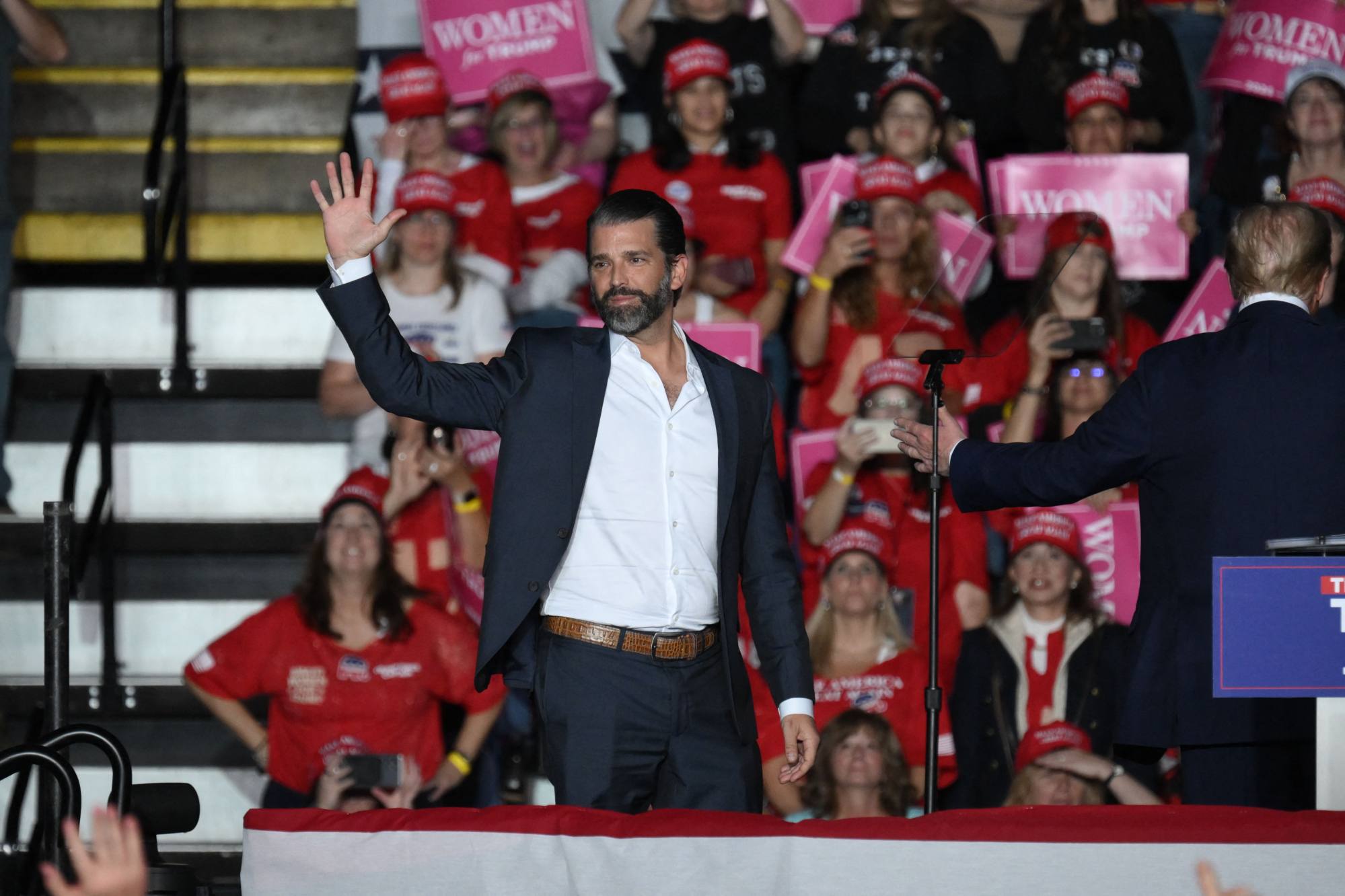
Douglas Paal, a former director of the American Institute in Taiwan under George W. Bush, said a previous backchannel between Kushner and Cui Tiankai, a former Chinese ambassador to the US, could be revived if there was a “need”.
“There is also a continuing rumour that the old channel of Cui Tiankai with Ivanka Trump and her husband Jared Kushner will still work,” Paal added, saying the couple seemed to prefer remaining “behind the scenes for now, but that desire would suit any need for privacy in communication with China”.
Cui reportedly established a backchannel with Kushner since early in Trump’s first term, eventually paving the way for Trump and Xi’s meeting in 2017.
Sun of Tsinghua said these backchannels were created at a time when both the US and China were looking to get acquainted after Trump was first elected in 2016 and to manage tensions after Trump’s phone call with then-Taiwanese leader Tsai.
Trump’s call to Tsai represented the first phone call between an American president and a Taiwanese leader since 1979, infuriating Beijing.
Beijing sees Taiwan as part of China to be reunited by force if necessary.
Most countries, including the US, do not recognise Taiwan as an independent state, but Washington is opposed to any attempt to take the self-governed island by force and is committed to supplying it with weapons.
Sun said backchannels would be less relevant now, as some Republicans sought “complete” victory in America’s competition with China rather than managing a relationship through dialogue.
Simon believed any genial moves by Trump offered “good cover” for serious behind-the-scenes business, with an eye to bringing about “some kind of deal or compromise” on issues like trade, tech, Taiwan, Ukraine and fentanyl, even if it’s not a “win-win.”
Have a question for our editors about how Trump’s presidency will impact China, Asia, and the world? Submit it now and be part of our live Q&A webinar on November 13, 10.30am HKT.
More from South China Morning Post:
- Chinese firms get unlikely boost from Trump election as merchandise orders soar
- No room for Mike Pompeo, Nikki Haley in Trump 2.0 White House
- Trump asks Lighthizer, architect of US-China trade war tariffs, to be trade chief: report
- How could a hawkish Donald Trump White House team shape US-China ties?
- Trump’s comeback no surprise for China – and this time Beijing is prepared
For the latest news from the South China Morning Post download our mobile app. Copyright 2024.





